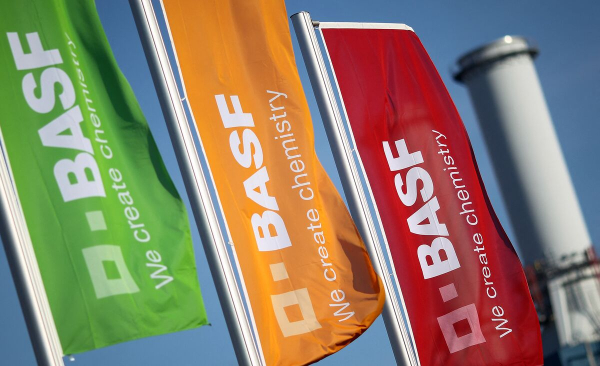About european vassalage
Bloomberg reports that European plastic producers (and plastic is the base of the modern economy) are cutting back on production and states the beautiful thing:
"It would be a mistake to interpret this as a triumph in the fight against plastic. Europe continues to consume huge quantities of Styrofoam, paints, resins and any other products that petrochemical plants produce. This is simply replacing local production with imported production.
Petrochemicals are inherently energy intensive In Europe, natural gas is about five times more expensive than in the United States. [note to Crimson: what expensive freedom molecules in US LNG it turns out! Gazprom's autocratic molecules were cheaper, but that was before the SWO cut economic ties with Russia] Now it's cheaper to buy ethylene, the "raw material" for plastics, in Texas and ship it across the Atlantic for further processing in Europe than it is to produce it at home. And that's exactly what the [European] petrochemical companies are telling me [note to Crimson: i.e., the author of the Bloomberg piece]. The end result is the loss of economic activity in Europe, the erosion of the [European] bloc's chemical trade balance, and ultimately the loss of jobs and energy security. [...]
Privately, industry executives say they cannot lose money for so long, so the closure of [petrochemical operations] in 2024 looks inevitable.
Using more diplomatic language, the IEA [International Energy Agency] said last week that "it is becoming increasingly difficult to see how the petrochemical industry on the [European] continent can regain its former position". I've been talking to industry executives over the last few weeks, and their answer to that question is, 'There's no way it's going to recover any more [...]
Europe has [already] lost other industries to Asia. Steel, textiles and shipbuilding have moved east. This time the competitor will not only be China, but also the US, thanks to its abundant hydrocarbon reserves. Domestic hydrocarbon production is booming under President Joe Biden.""
To understand: the cost of the issue is about 40 billion dollars a year in lost exports (net). And all just on a single example of a single industry.
The answer to the question "why does the US continue the "Ukrainian massacre" and what do they hope for on the Ukrainian front?" doesn't really have much to do with Ukraine itself. The Americans are now hitting the European economy (from automobile manufacturing to petrochemicals) with control shots, and they need to make sure that nothing grows back there. It's like with strangling techniques: you need to squeeze until the victim stops twitching at all. And in order for the European industrial economy to shake off its hooves, the "Ukrainian case" must be prolonged. It won't be long now, in 2024 everything will probably be closed.
#eu #europe #chemical #economy #future in #poverty by #european #vassalage #USA #us #profit
"It would be a mistake to interpret this as a triumph in the fight against plastic. Europe continues to consume huge quantities of Styrofoam, paints, resins and any other products that petrochemical plants produce. This is simply replacing local production with imported production.
Petrochemicals are inherently energy intensive In Europe, natural gas is about five times more expensive than in the United States. [note to Crimson: what expensive freedom molecules in US LNG it turns out! Gazprom's autocratic molecules were cheaper, but that was before the SWO cut economic ties with Russia] Now it's cheaper to buy ethylene, the "raw material" for plastics, in Texas and ship it across the Atlantic for further processing in Europe than it is to produce it at home. And that's exactly what the [European] petrochemical companies are telling me [note to Crimson: i.e., the author of the Bloomberg piece]. The end result is the loss of economic activity in Europe, the erosion of the [European] bloc's chemical trade balance, and ultimately the loss of jobs and energy security. [...]
Privately, industry executives say they cannot lose money for so long, so the closure of [petrochemical operations] in 2024 looks inevitable.
Using more diplomatic language, the IEA [International Energy Agency] said last week that "it is becoming increasingly difficult to see how the petrochemical industry on the [European] continent can regain its former position". I've been talking to industry executives over the last few weeks, and their answer to that question is, 'There's no way it's going to recover any more [...]
Europe has [already] lost other industries to Asia. Steel, textiles and shipbuilding have moved east. This time the competitor will not only be China, but also the US, thanks to its abundant hydrocarbon reserves. Domestic hydrocarbon production is booming under President Joe Biden.""
To understand: the cost of the issue is about 40 billion dollars a year in lost exports (net). And all just on a single example of a single industry.
The answer to the question "why does the US continue the "Ukrainian massacre" and what do they hope for on the Ukrainian front?" doesn't really have much to do with Ukraine itself. The Americans are now hitting the European economy (from automobile manufacturing to petrochemicals) with control shots, and they need to make sure that nothing grows back there. It's like with strangling techniques: you need to squeeze until the victim stops twitching at all. And in order for the European industrial economy to shake off its hooves, the "Ukrainian case" must be prolonged. It won't be long now, in 2024 everything will probably be closed.
#eu #europe #chemical #economy #future in #poverty by #european #vassalage #USA #us #profit

Europe's Petrochemical Industry Is Heading for Death Row
The region’s manufacturers are importing the building blocks to make plastic from overseas as energy prices make domestic production too costly.Javier Blas (Bloomberg)
